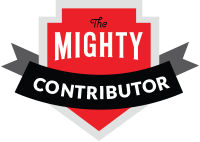Last in a Series: Support, Advocacy and Stewardship
When Matthew was only months old I recognized his intelligence and sense of humour watching the pantomime he put on for doctors, the people who had written him off. Even though Matt was strong and alert, in their presence he hung limp as Raggedy Andy, crossed his eyes, and wheezed, only to make a dramatic recovery the minute we left the treatment room!
Family and friends loved Matthew unconditionally and applauded his every accomplishment, even though he made slow progress by regular baby standards.
I learned how to advocate for him by talking to professionals and people outside our circle about his incredible swimming proficiency and his ability to charm everyone at Peter Pan, his nursery school.
But the child growing into an adult needed wider acceptance and the assurance of a future. There was no doubt about the future direction of our two younger children, Kelley and Joseph. They would progress from their nursery school, to grade school, high school and hopefully, on to university.
What, if any, educational experience could Matthew’s expect? Hoping to find answers, my husband Ed and I joined the Oakville Association for Retarded Children, its registered name in the 1970’s.
I wondered if the families in the association, each advocating for their own high-needs child, felt like me; isolated in a world most people knew little about. We decided that typical families, communities and government had to learn more about our kids.
Collective action, which can be defined as stewardship, was needed to impress society and government with the gifts and talents of people with handicapping conditions. And, in order to grow and enhance those abilities, these children required an appropriate education and a community that included them in all aspects of life.
A good example of community stewardship is the handy van program. Folks using wheelchairs can go about their daily activities and enjoy independence by accessing this service. Somebody saw the need, acted on the need, and the result was a better life for people and their families.
Another excellent example of stewardship is the work of Priscilla and Rocco de Villiers. After the brutal murder of their daughter Nina in 1991, these parents circulated the de Villiers Petition, a document that exposed serious deficiencies in the Canadian criminal justice system. They collected over three million signatures, and CAVEAT, Canadians Against Violence, was born.
The Office for Victims of Crime in Ontario, as well as Justice Canada’s Policy for Victim’s Issues, were landmark institutional developments in which CAVEAT played a significant role.
The de Villiers lost their daughter in a horrific way. They stretched beyond their grief, reaching out to Canadians to make our streets safer. They were tireless and unrelenting stewards of their cause.
In the case of the de Villiers, it was the ultimate giving back when they had lost everything.
Hillary Clinton’s book, It Takes a Village, is also about stewardship. Parents, family members and friends of persons with developmental disabilities and/or mental illness are that village. Without us, the creation of community living associations would not have occurred. And, without the stewardship of numerous associations, our loved ones would not have many of the services and opportunities they enjoy today.
The steward’s voices did reach communities and governments. Legislation was drafted and put in place to protect, recognize, educate and enhance the lives of people with developmental disabilities and/or mental illness.
The word retarded has been stricken from every association in Canada and is never heard in reference to people with developmental disabilities. Not by families, not by friends, not in communities and not by professionals.
Now we need to address the word “stigma”. The “stigma of mental illness”. Lose that word, the same way the stewards of the developmentally handicapped struck down the word “retarded”. Ill-chosen appellation breeds adverse thinking and ignorance.
Stigma and stagnation sound similar to me.
Some excellent sites to track the progress of developmental and mental health seervices in Ontario are:
www.dsontario.ca
www.mcss.gov.on.ca/en/dshistory/index.aspx
Google: History of Developmental Services in Ontario, to see an extensive list, and The Ontario Mental Health Act (OMHA)
www.mentalhealthcommission.ca




{ 5 comments… read them below or add one }
stewardship–what a great concept. and a word we don’t often hear. maybe someday it’ll be as pervalent as some of those other words you mentioned. thanks for sharing your experiences and ideas. i learn something everytime i read one of your posts. jennifer
Thanks, Jennifer. Your comments are appreciated. It’s so good to hear from readers.
your book is amazing I purchased it 2 days ago and i am almost done. thank you for writting it. I don’t know how you survived going through the mental health system back then. even today with so much more known about mental health and how to treat it, it is still an unbelivably difficult journey. i thank you for giving me the strength to continue.
Patricia, Thank you so much for buying Finding Matthew. Your comment is very humbling. Yes, Matthew’s journey was difficult for him and for us, but we loved him and of course, still do.
“High Quality Educational and Therapeutic Care Options for Special Needs Students” Guest: Andy Anderson Raising a special needs child often presents parents with challenging therapeutic and educational decisions. Andy Anderson joins our guest host, Dr. Michelle, to talk about how The Independent Small Programs Alliance (ISPA), a consortium of small therapeutic programs, is yielding big results for special needs youth with autism, Down Syndrome and other developmental disabilities. Founded by Anderson in 2005, ISPA members are among the highest quality educationally and clinically-based programs and schools in the US and abroad. They form an umbrella of hope for families in the US and abroad.